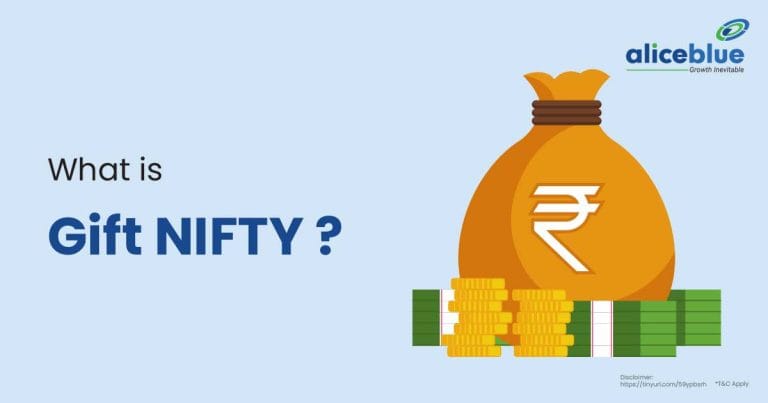Ashok Leyland Ltd’s fundamental analysis highlights key financial metrics including market capitalization of ₹71,648.83 crore, PE ratio of 28.85, debt-to-equity ratio of 345.35, and return on equity of 21.97%. These figures reflect the company’s financial health and current market valuation.
Content:
- Ashok Leyland Ltd Overview
- Ashok Leyland Financial Results
- Ashok Leyland Ltd Financial Analysis
- Ashok Leyland Ltd Company Metrics
- Ashok Leyland Ltd Stock Performance
- Ashok Leyland Peer Comparison
- Ashok Leyland Shareholding Pattern
- Ashok Leyland History
- How To Invest In Ashok Leyland Limited Share?
- Ashok Leyland Limited Fundamental Analysis – FAQs
Ashok Leyland Ltd Overview
Ashok Leyland Ltd is an Indian automobile manufacturing company. It operates in the commercial vehicle sector, specializing in the production of trucks, buses, light commercial vehicles, and defense vehicles.
The company has a market capitalization of ₹71,648.83 crore and is listed on both the Bombay Stock Exchange (BSE) and National Stock Exchange (NSE). Currently, the stock is trading 6.15% below its 52-week high and 54.87% above its 52-week low.

Ashok Leyland Financial Results
Ashok Leyland’s financial performance in FY24 shows significant growth in sales, increasing from ₹41,673 crore in FY23 to ₹45,791 crore in FY24. Despite rising expenses, operating profit and net profit have improved, demonstrating resilience.
1. Revenue Trend: Sales increased from ₹41,673 crore in FY23 to ₹45,791 crore in FY24, highlighting robust growth.
2. Equity and Liabilities: Equity capital remained stable at ₹293.63 crore, while total liabilities rose from ₹54,729 crore in FY23 to ₹67,660 crore in FY24.
3. Profitability: Operating profit surged from ₹5,093 crore in FY23 to ₹7,943 crore in FY24, with an OPM of 17%.
4. Earnings per Share (EPS): EPS doubled from ₹4.23 in FY23 to ₹8.46 in FY24, reflecting increased profitability.
5. Return on Net Worth (RoNW): ROE improved as net profit increased from ₹1,362 crore in FY23 to ₹2,696 crore in FY24.
6. Financial Position: Total assets grew from ₹54,729 crore in FY23 to ₹67,660 crore in FY24, indicating an enhanced financial position.
Ashok Leyland Ltd Financial Analysis
| FY 24 | FY 23 | FY 22 | |
| Sales | 45,791 | 41,673 | 26,237 |
| Expenses | 37,848 | 36,580 | 23,472 |
| Operating Profit | 7,943 | 5,093 | 2,765 |
| OPM % | 17 | 12 | 11 |
| Other Income | 56 | 159 | -237 |
| EBITDA | 8,083 | 5,204 | 2,852 |
| Interest | 2,982 | 2,094 | 1,869 |
| Depreciation | 927 | 900 | 866 |
| Profit Before Tax | 4,090 | 2,258 | -207 |
| Tax % | 34 | 40 | -41 |
| Net Profit | 2,696 | 1,362 | -285 |
| EPS | 8.46 | 4.23 | -1.22 |
| Dividend Payout % | 58.51 | 61.47 | -81.97 |
* Consolidated Figures in Rs. Crores
Ashok Leyland Ltd Company Metrics
Ashok Leyland’s market cap is ₹71,648.83 crore with a book value of ₹30.7 per share. The face value per share is ₹1. Total debt is ₹40,802.18 crore, ROE is 21.97%, and quarterly EBITDA is ₹1,904.4 crore. Dividend yield stands at 2.03%.
Market Capitalization:
Market Capitalization represents the total market value of Ashok Leyland’s outstanding shares, amounting to ₹71,648.83 crore.
Book Value:
The book value per share of Ashok Leyland Ltd is ₹30.7 indicating the value of the company’s net assets divided by its shares outstanding.
Face Value:
The face value of Ashok Leyland’s shares is ₹1, which is the nominal value of each share as stated on the share certificate.
Asset Turnover Ratio:
The Asset Turnover Ratio of 0.76 measures how efficiently Ashok Leyland uses its assets to generate sales revenue or sales income.
Total Debt:
The Total Debt of Ashok Leyland stands at ₹40,802.18 crore, representing the total amount of money the company owes to creditors.
Return on Equity (ROE):
The ROE of 21.97% measures Ashok Leyland’s profitability by revealing how much profit the company generates with the money shareholders have invested.
EBITDA (Q):
The quarterly EBITDA (Earnings Before Interest, Taxes, Depreciation, and Amortization) of Ashok Leyland is ₹1,904.4 crore, indicating the company’s operating performance.
Dividend Yield:
The dividend yield of 2.03% shows the annual dividend payment as a percentage of Ashok Leyland’s current share price, indicating the return on investment from dividends alone.
Ashok Leyland Ltd Stock Performance
Apollo Tyres Ltd has shown returns of 34.9% in one year, 24.6% over three years, and 32.2% over five years. This indicates a strong growth potential and consistent performance for investors.
| Period | Return on Investment (%) |
| 1 Year | 34.9 |
| 3 Years | 24.6 |
| 5 Years | 32.2 |
Example: If an investor had invested ₹1,000 in Apollo Tyres’ stock:
1 year ago, their investment would be worth ₹1,349.
3 years ago, their investment would have grown to ₹1,246.
5 years ago, their investment would have increased to approximately ₹1,322.
Ashok Leyland Peer Comparison
Ashok Leyland Ltd has a current market price of ₹253 and a market capitalization of ₹74,380 crore. With a P/E ratio of 28.85 and an ROE of 28%, it shows solid profitability. The 1-year return is 35%, ROCE is 15%, and the dividend yield is 1.94%. Competitors include Tata Motors, Olectra Greentec, Force Motors, and SML ISUZU.
| Name | CMP Rs. | Mar Cap Rs.Cr. | P/E | ROE % | EPS 12M Rs. | 1Yr return % | ROCE % | Div Yld % |
| Tata Motors | 1,061 | 3,89,743 | 11 | 49 | 102 | 77 | 20 | 0.28 |
| Ashok Leyland | 253 | 74,380 | 29 | 28 | 8 | 35 | 15 | 1.94 |
| Tata Motors-DVR | 730 | 37,144 | 9.08 | 26.21 | 20.61 | 83 | 22.42 | 0.43 |
| Olectra Greentec | 1,719 | 14,107 | 170 | 9 | 10 | 37.3 | 14.79 | 0.03 |
| Force Motors | 8,385 | 11,052 | 25 | 19 | 330 | 150 | 24 | 0.12 |
| SML ISUZU | 2,028 | 2,934 | 24 | 47 | 85 | 59 | 23.81 | 0.80 |
Ashok Leyland Shareholding Pattern
Ashok Leyland Ltd shows a consistent promoter holding of 51.52% from June 2024 to March 2024, slightly decreasing from 52% in December 2023. FII holdings increased from 20.48% to 22.03%, while DII holdings rose from 12.23% to 14.12%. Retail and others’ holdings fluctuated, ending at 12.31%.
| All values in % | Jun-24 | Mar-24 | Dec-23 |
| Promoters | 51.52 | 51.52 | 52 |
| FII | 22.03 | 21.45 | 20.48 |
| DII | 14.12 | 12.23 | 14.66 |
| Retail & others | 12.31 | 14.79 | 13.32 |
Ashok Leyland History
Ashok Leyland Limited is a prominent Indian automobile manufacturer, primarily focused on commercial vehicles. The company’s main activities encompass manufacturing and sales of a wide range of commercial vehicles, as well as providing vehicle and housing finance services. Additionally, Ashok Leyland is involved in IT services related to the automotive sector.
The company’s product portfolio is diverse, covering various segments of the commercial vehicle market. This includes trucks in categories such as haulage, intermediate commercial vehicles (ICV), tippers, and tractors. In the bus segment, Ashok Leyland offers products for city transport, intercity travel, school and college transportation, staff buses, stage carriers, and tourist buses.
Ashok Leyland has also expanded into the light vehicle segment, producing light commercial vehicles, small commercial vehicles, goods carriers, and passenger vehicles. The company’s expertise extends to power solutions, offering agricultural engines, diesel generators, industrial engines, marine engines, and gas gensets. Furthermore, Ashok Leyland has a significant presence in the defense sector, manufacturing armored vehicles, high mobility vehicles, and other specialized military vehicles.
How To Invest In Ashok Leyland Limited Share?
To invest in Ashok Leyland Limited shares, begin by opening a demat account with Alice Blue. Complete the necessary KYC process and fund your account with the desired investment amount.
Research the company’s fundamentals, financial performance, and market trends before making an investment decision. Use the trading platform provided by the broker to place a buy order for Ashok Leyland shares at your preferred price.
Monitor your investment regularly and stay informed about company news and market developments. Consider setting up a systematic investment plan (SIP) for long-term investing in the stock if it aligns with your financial goals.

Ashok Leyland Limited Fundamental Analysis – FAQs
Fundamental analysis of Ashok Leyland Ltd examines key financial metrics: Market Cap (₹71,648.83 crores), PE Ratio (28.85), Debt to Equity (345.35), and Return on Equity (21.97%). These indicators provide insights into the company’s financial health, market valuation, and overall performance in the commercial vehicle sector.
Determining if Ashok Leyland is a good long-term buy depends on various factors including the company’s financial health, growth prospects, industry trends, and individual investment goals. Investors should conduct thorough research and consider consulting a financial advisor before making long-term investment decisions.
The market capitalization of Ashok Leyland is ₹71,648.83 crore. This figure represents the total value of the company’s outstanding shares in the stock market, calculated by multiplying the current share price by the total number of shares outstanding.
Ashok Leyland Limited is an Indian automobile manufacturing company specializing in commercial vehicles. It produces a wide range of vehicles including trucks, buses, light commercial vehicles, and defense vehicles. The company also offers related services such as vehicle finance and IT solutions.
Ashok Leyland is a public limited company, with the Hinduja Group as the major promoter. While the Hinduja family holds a significant stake through various entities, it is a listed company with multiple shareholders including institutional investors and public shareholders.
The main shareholders of Ashok Leyland Limited typically include the Hinduja Group (promoter entities) as major stakeholders, along with institutional investors (both domestic and foreign), mutual funds, and public shareholders. For the most current shareholding information, refer to the latest pattern disclosed by the company.
Ashok Leyland operates in the automotive industry, specifically in the commercial vehicle sector. The company specializes in manufacturing and selling a wide range of commercial vehicles including trucks, buses, light commercial vehicles, and defense vehicles.
To invest in Ashok Leyland shares, open a demat account with Alice Blue. Complete the KYC process and fund your account. Research the company thoroughly, then use the trading platform to place a buy order for the desired number of shares at your preferred price.
We hope you’re clear on the topic, but there’s more to explore in stocks, commodities, mutual funds, and related areas. Here are important topics to learn about.









